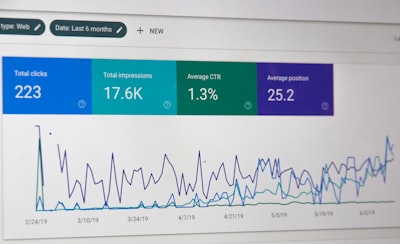How to Get Back links for SEO
How to Get Back links
How to Get Back links. They are one of the crucial factors that determine your website’s ranking on the search engine result pages (SERPs). But not all backlinks are created equal. Some can work wonders for your website’s SEO, while others can hurt it badly. In this ultimate guide blog post, we will discuss everything you need to know about getting quality backlinks for SEO, including the use of SEO tools.
We’ll start by understanding what backlinks are and why they are important in SEO. Then, we’ll dive into identifying good backlinks versus bad ones and strategies for building high-quality links. We’ll also talk about the importance of anchor text in backlinks and how to monitor your backlink profile effectively. By the end of this post, you’ll have a better understanding of how to get quality backlinks for SEO and improve your website’s ranking on SERPs.

Understanding Backlinks and their Importance in SEO
Backlinks play a crucial role in SEO by enhancing the credibility and authority of a website. They are links from other websites that direct users to your site. These links act as votes of confidence, signaling to search engines like Google that your content is valuable and relevant. By having quality backlinks, including through guest posts, you can improve your website’s visibility and rankings in search engine results.
There are different types of backlinks, including dofollow and nofollow links. Dofollow links pass on link juice, positively impacting your site’s search rankings. Nofollow links, on the other hand, do not contribute to SEO directly but can still drive traffic to your site.
Finding high-quality websites for backlinking is essential. Look for sites that have a high domain authority, relevance to your niche, and a strong reputation. Strategies for earning backlinks include creating valuable and shareable content, guest blogging, and engaging with influencers in your industry, such as on LinkedIn. One effective way to earn backlinks is by creating skyscraper content that is better than what is currently available on the web.
It is also important for webmasters to regularly monitor their backlink profile and identify any toxic or low-quality links. Disavowing these links can help protect your site’s rankings and reputation.
Defining Keyword Backlinks
Backlinks, also known as inbound links or incoming links, are links from other websites that direct users to your website. They serve as a signal to search engines like Google that your type of content is valuable and relevant. Having high-quality backlinks can positively impact your website’s search engine rankings, leading to increased visibility and organic traffic, and potentially landing your website on the coveted first page of search results.
To acquire backlinks naturally, the best way is to focus on creating exceptional content that other websites would want to link to. Additionally, engaging in outreach and networking with influencers and industry leaders can help you earn valuable backlinks. However, it is crucial to avoid low-quality or spammy backlinks, as they can harm your SEO efforts and even lead to penalties from search engines.
Remember, the goal is to obtain high-quality backlinks from authoritative websites within your niche that include brand mentions. These backlinks not only contribute to your website’s domain authority but also drive targeted traffic to your homepage. By understanding the importance of backlinks and implementing effective strategies, you can improve your search engine rankings and boost your overall SEO performance.
Role of Backlinks in SEO
Backlinks, which are links from other websites to your site, play a vital role in SEO. They help search engines understand the relevance and popularity of your website and the types of content you offer. High-quality backlinks from authoritative websites can significantly boost your search engine rankings. It’s important to note that backlinks should be earned naturally through valuable content and outreach efforts.
Building a diverse portfolio of backlinks from different sources is key to improving your overall SEO strategy. By utilizing various strategies such as creating high-quality content, guest blogging, and leveraging social media profiles, you can increase the number of quality backlinks pointing to your website. Remember, the quality and diversity of your backlink profile are crucial factors in determining your website’s ranking on search engine results pages (SERPs).
Identifying Good Backlinks Vs Bad Backlinks
Identifying good backlinks versus bad backlinks is crucial for effective link building and maintaining a strong SEO strategy. Good backlinks are sourced from high-quality, authoritative sites within your niche. These backlinks are a result of genuine effort and relationship building, which often involves guest posting, outreach, and networking. On the other hand, bad backlinks originate from spammy or low-quality sites that can harm your website’s SEO efforts.
It’s important to avoid purchasing backlinks or participating in link schemes, as search engines like Google penalize these practices. Instead, focus on creating valuable content that naturally attracts backlinks, such as infographics, case studies, and expert guides. Regularly monitoring and auditing your backlink profile is also essential to identify and disavow any harmful backlinks.
Characteristics of Good Blog Back links
Good backlinks are obtained from authoritative and reputable websites within your niche. They should be relevant to the content on your website, providing added value to users. These backlinks are earned naturally through high-quality content creation and outreach efforts, such as content marketing. It’s important for them to have high domain authority and page authority, indicating a trustworthy and credible source.
Diverse sources, including social media platforms and industry directories, should be leveraged to obtain good backlinks. By incorporating these characteristics into your link-building strategy, you can improve your website’s rankings and organic traffic. Remember to focus on building relationships with influencers, guest blogging, and creating valuable content that resonates with your target audience.
Characteristics of Bad Backlinks and How to Avoid Them
When it comes to backlinks, it’s crucial to understand the characteristics of bad backlinks and how to avoid them. Bad backlinks typically come from low-quality or spammy websites that offer little to no value to users. These types of backlinks can actually harm your website’s SEO efforts. Additionally, backlinks that are paid for or placed in irrelevant content can also be detrimental to your rankings on search engines like Google.
To ensure you steer clear of bad backlinks, it’s important to avoid link farms and excessive reciprocal linking, as these practices can have a negative impact on your website’s ranking. Utilizing tools like Google Search Console can help you identify and disavow any harmful backlinks. Instead, focus on building quality backlinks from authoritative and relevant websites to boost your SEO efforts.
Strategies for Quality Backlink Building
To build quality backlinks, there are several effective strategies you can employ. One strategy is guest blogging, where you write high-quality content and pitch it to relevant websites in your industry. Another approach is broken link building, which involves finding broken links on other websites and offering to replace them with your own quality piece of content. Infographics are also a great way to gain backlinks – create informative infographics and share them on social media and infographic directories.
Additionally, resource pages can be a valuable source of backlinks. Look for resource pages related to your industry and request a backlink if your site can add value to their content. Lastly, don’t underestimate the power of social media. Sharing your content on social media platforms and engaging with your audience can help attract backlinks, including from HARO (Help a Reporter Out) queries.
Creating High-Quality Skyscraper Content
Creating high-quality, informative content with graphics is essential in attracting natural backlinks from other websites. Unique and engaging content that offers value to readers is more likely to be shared and linked to by others. To establish credibility in your industry, it’s important to use data and research to support your content. Incorporating visual elements like images and videos can make your content more shareable and increase its appeal.
It’s also crucial to promote your content through social media, email lists, and outreach to industry influencers. By increasing visibility and actively seeking out backlink opportunities, you can enhance the chances of obtaining high-quality backlinks for your website. Remember, quality content is the cornerstone of successful link building and can significantly improve your site’s rankings and organic traffic.
Leveraging Social Media Profiles such as Linkedin
Social media profiles play a crucial role in acquiring high-quality backlinks for your website. It is important to ensure that your profiles are complete and include links to your website, such as on Facebook and Twitter. This allows users to easily navigate to your site and potentially create backlinks. Sharing your content on social media platforms can attract more links and engagement from your audience.
Engaging with other users and businesses on these platforms can help you build relationships that could lead to potential backlink opportunities. Additionally, joining relevant groups or communities on social media enables you to connect with like-minded individuals and businesses, further expanding your backlink network. Leveraging social media profiles effectively can significantly contribute to your overall link building and SEO strategy.
Guest Blogger as a Backlink Strategy
Guest blogging is a valuable backlink strategy in SEO. It involves writing articles for high-quality websites within your niche, in exchange for a backlink to your own website. By choosing reputable websites, you can maximize the value of your backlinks. Additionally, focusing on creating valuable content for the host website increases the chances of your post being accepted.
Use your author bio to showcase your expertise and include a link back to your website. Guest blogging not only helps you gain backlinks but also enables you to build relationships with other bloggers in your industry. This can lead to more opportunities for collaboration and further exposure. Utilizing guest blogging as part of your link-building strategy can greatly benefit your website’s rankings and organic traffic.
Infographics for Link Building
Infographics are a valuable asset in link building for SEO. They offer visually appealing and shareable content that can attract site owners to link back to your website. By creating infographics that are relevant, concise, and visually appealing, you increase the chances of others incorporating them into their own content. To further increase visibility, you can submit your infographics to various infographic directories and share them on social media platforms. Infographics can also be used as content upgrades for existing blog posts, incentivizing others to link back to your website. By consistently creating high-quality and informative infographics, you have the potential to earn natural and organic backlinks from authoritative sites.
Using Influencer Testimonials for Backlinks
Testimonials can serve as a valuable strategy for building backlinks to your website. They not only showcase your expertise but also provide value to other websites in your industry or niche. Seek out relevant websites that may be interested in featuring your testimonials. Craft well-written and detailed testimonials that highlight your knowledge and skills. Don’t forget to include a link back to your website within the testimonial itself. Once your testimonial is published, make sure to follow up and express your gratitude to the website for featuring your testimonial and linking back to your site. Testimonials can be an effective way to establish credibility and generate high-quality backlinks that contribute to the growth of your online presence.
Exploiting Broken Links
Exploiting broken links can be a smart strategy to improve your website’s backlink profile. Broken links not only lower the credibility of a website but also present an opportunity to gain high-quality backlinks. Start by using online tools to identify broken links on credible websites within your niche. Once you’ve found broken links, reach out to the website owners and offer to replace those broken links with relevant and valuable content from your own website. This approach helps both parties, as you’re providing a solution to their broken links while gaining quality backlinks for your own website. Remember to ensure that the replacement content aligns with the website’s audience and offers value. Broken link building is considered a white-hat SEO technique and can significantly improve your website’s ranking and authority. It’s a win-win situation that can positively impact your overall SEO strategy.
Utilizing Promotions and Donations
One effective strategy for building quality backlinks is to utilize promotions and donations. By offering promotions or discounts, you can attract other websites to link to your content and increase your online visibility. Similarly, donating to charity or sponsoring events can earn you valuable backlinks from reputable sources. It is crucial to choose promotions or donations that align with your brand’s values and target audience to ensure the backlinks obtained are relevant and meaningful. Researching and identifying relevant websites or organizations to reach out to for potential backlinks is an important step in this process. Remember, when it comes to building backlinks for SEO, prioritizing quality over quantity is key.
Conducting Interviews for Backlinks
Conducting interviews with industry experts can be an effective strategy to gain high-quality backlinks for your website or blog. By reaching out to influencers and bloggers in your niche, you can request interviews and offer valuable content that is relevant to their audience. It’s important to make sure that the interview questions are well-planned and provide valuable insights to the expert’s audience. Additionally, you can offer to publish the interview on your website, providing a backlink to the expert’s website or blog. This not only benefits your SEO strategy but also creates a mutually beneficial relationship with the expert. To maximize the visibility and potential for backlinks, utilize social media platforms to share your interview content. This will help increase your reach and promote your brand as an authoritative source in your industry.
How Updating Old Content Can Generate Backlinks?
Updating old content can be a powerful strategy for generating backlinks. By making your content more relevant and valuable, you increase the chances of other websites linking to it. Adding new information or updating statistics can attract attention and lead to more shares and links on social media. Regularly updating old content also shows search engines that your website is active and authoritative, improving your rankings and attracting more backlinks.
Using Link Building and Outreach Tools
Link building tools play a crucial role in finding potential backlink opportunities for your website. These tools, such as Ahrefs, Moz, and SEMrush, can help you analyze your competitors’ backlinks and identify areas of opportunity. However, it’s important to use these tools responsibly and avoid engaging in spammy link building practices. The key is to focus on creating high-quality content that naturally attracts backlinks. By utilizing link building tools effectively, you can enhance your SEO strategy and improve your website’s visibility and rankings in search results. Remember, the ultimate goal is to build a strong backlink profile with relevant and high-quality backlinks from reputable websites in your niche. Using link building tools can be a great way to achieve this and boost organic traffic to your site.
Why is Anchor Text Important in Backlinks?
Anchor text plays a crucial role in backlinks as it provides context to search engines and improves the ranking of linked pages. However, using excessive exact match anchor text can lead to penalties. It’s important to maintain a diverse and natural anchor text profile for effective link building.
Defining Anchor Text
Anchor text, which is the visible and clickable text in a hyperlink, plays a crucial role in directing users to another web page. It also serves as a signal to search engines about the content on the linked page, aiding in ranking. Choosing descriptive anchor text consistently can enhance website credibility and attract more traffic. However, it is essential to avoid overusing exact match anchor text, as this can lead to penalties from search engines. To diversify the backlink profile and boost SEO, it is recommended to select relevant and varied anchor text phrases. By doing so, you can optimize your website’s performance and improve its visibility in search engine results.
The Role of Anchor Text in SEO
Anchor text plays a crucial role in SEO by providing important context for search engines. It is the visible, clickable text in a hyperlink that directs users to another web page. Search engines use anchor text to understand the content of the linked page and determine its relevance and authority. Using relevant and descriptive anchor text helps search engines better index and rank web pages. It is important to ensure that anchor text is natural and avoids overuse of exact match keywords. Diverse anchor text helps create a more natural backlink profile, which is beneficial for SEO. By using varied and relevant anchor text phrases, website owners can enhance their backlink strategy and improve their search engine rankings.
How to Monitor Your Backlinks?
To effectively monitor your backlinks, utilize a reliable backlink monitoring tool such as Ahrefs or SEMrush. Set up alerts to stay updated on new backlinks and changes in existing ones. Regularly assess the quality and relevance of your backlinks, while also checking for broken links to disavow any toxic backlinks.
Importance of Monitoring Backlinks
Regularly monitoring your backlinks is essential in maintaining a healthy SEO strategy. It helps you identify any negative SEO or spammy links that could harm your website’s ranking. By keeping an eye on your backlinks, you can track the success of your link-building efforts and take necessary action on any broken or lost backlinks. Tools like Ahrefs, Majestic, or SEMrush can assist you in monitoring your backlinks effectively. Moreover, monitoring backlinks also enables you to stay updated on the latest link-building trends and strategies, ensuring your website stays competitive in search engine rankings. Don’t overlook the importance of regularly monitoring your backlinks; it plays a crucial role in optimizing your SEO performance.
Tools for Monitoring Backlinks.
When it comes to monitoring the performance of your backlinks, there are several useful tools available. One option is Google Search Console, which provides a free and easy way to keep track of your backlinks. This tool allows you to see which websites are linking to yours and view important metrics such as the number of backlinks and referring domains.
Another popular tool for monitoring backlinks is SEMrush. It offers a comprehensive backlink monitoring tool that provides detailed metrics and analysis. With SEMrush, you can track the quality and quantity of your backlinks, as well as analyze your competitors’ backlinks to gain valuable insights.
Ahrefs is another recommended tool for monitoring backlinks. It allows you to track your own backlinks and also provides in-depth analysis of your competitors’ backlinks. With Ahrefs, you can easily monitor the growth and quality of your backlink profile.
Majestic SEO is a tool that provides detailed data on backlinks, referring domains, and anchor texts. It offers a range of features to help you monitor and analyze your backlinks effectively.
Lastly, Moz Pro offers a backlink explorer tool that allows you to see the quality and quantity of your backlinks. With Moz Pro, you can measure the effectiveness of your link-building strategies and identify areas for improvement.
These tools provide valuable insights into your backlink profile and help you make data-driven decisions to improve your SEO efforts. By monitoring your backlinks with these tools, you can ensure that your link-building strategies are effective and driving results.
How can I ensure that the backlinks I am getting are from reputable sources?
To ensure that the backlinks you acquire are from reputable sources, consider checking the domain authority of the linking websites. Look for relevant websites in your industry and avoid those that have been penalized by search engines. Utilize backlink analysis tools to monitor the quality of your backlinks and identify any potential issues.
Conclusion
In conclusion, building quality backlinks is crucial for improving your website’s SEO. Good backlinks act as endorsements from reputable sources, signaling to search engines that your content is valuable and trustworthy. On the other hand, bad backlinks can harm your SEO efforts and even lead to penalties. To acquire quality backlinks, focus on creating high-quality content, leveraging social media, guest blogging, utilizing infographics, testimonials, and broken links.
Additionally, consider conducting interviews, updating old content, and using link building tools. Don’t forget the importance of anchor text, which helps search engines understand the relevance of the linked page. Lastly, monitor your backlinks regularly using tools to ensure their quality and make necessary adjustments. By following these strategies, you can enhance your website’s visibility, organic traffic, and overall SEO performance.
Don’t forget to follow on Instagram, Facebook, Twitter and Pinterest.





